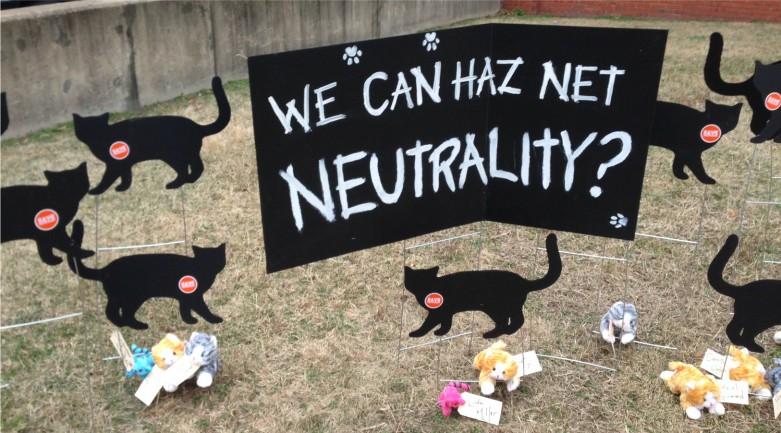
Here Come the Lawyers: First Net Neutrality Lawsuits Filed
Late Monday the first lawsuits against the FCC’s new Net Neutrality rules were filed.
For anyone following this issue, this development should come as no surprise. Open Internet opponents have long threatened to sue the FCC over any protections it passed.
Two separate suits were filed — one from U.S. Telecom, which represents some of the nation’s biggest Internet service providers, and the other from Alamo Broadband, a smaller company based in Texas. Both claim that the FCC overstepped its authority, calling the rules “arbitrary, capricious, and an abuse of discretion.”
But here’s the truth: The FCC has always had the authority to reclassify broadband access service under Title II, and the agency’s decision to do so last month remedied a decade of bad policy decisions.
Net Neutrality has never been about regulation of the Internet. It’s about ensuring that companies like Comcast and Verizon can’t mess around with what we’re doing online.
The facts haven’t stopped some members of Congress from repeating an endless series of false claims and outright lies during the congressional hearings where these rules have been under scrutiny over the past two weeks. These members are grasping at straws; several even dismissed the idea that the public should have a voice in this process.
The FCC has called the suits “premature and subject to dismissal,” which may be the case; the rules haven’t yet been published in the Federal Register. If the courts end up dismissing these suits, more will likely follow.
Fortunately the FCC’s new rules have something their predecessors didn’t: a strong legal foundation. The courts made it clear that the agency couldn’t have it both ways: If the FCC wanted to subject ISPs to common-carriage rules, it needed to classify those companies as common carriers — as entities required to handle all online traffic and services without discrimination. The move in 2015 to reclassify under Title II did just that, and it’s a big reason why Net Neutrality advocates cheered the FCC’s vote.
The public has spoken on this, and the law is solid. Now we’ll see if our elected officials side with the people they represent — and if the courts uphold the law itself.